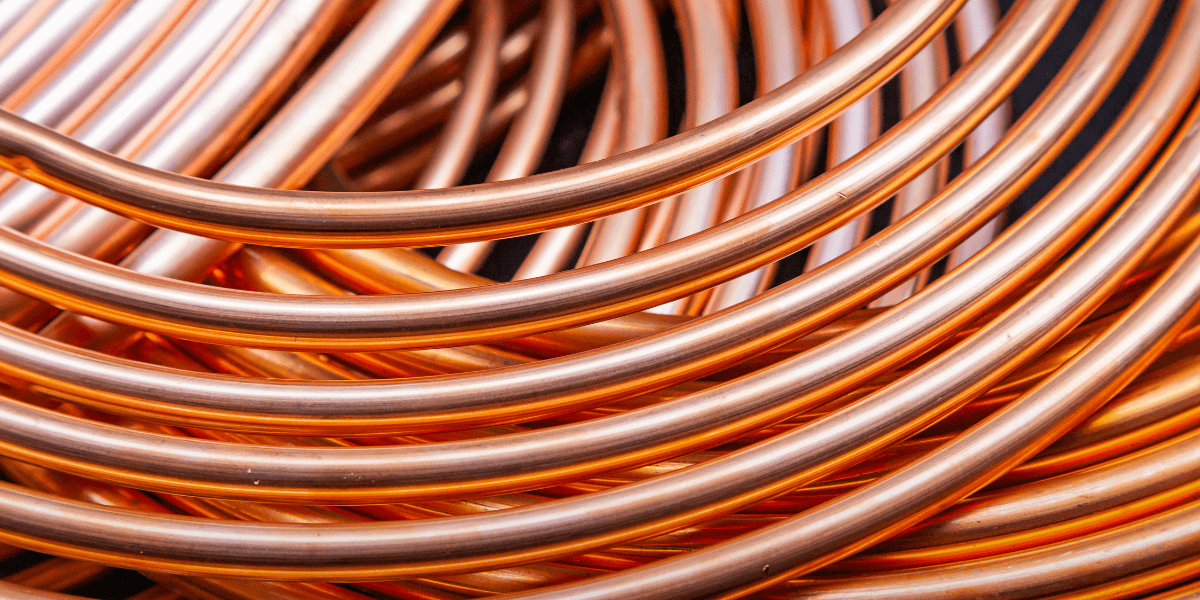What is the Difference Between a Microchannel Coil vs. Copper Coil?

Picking the right coil for your HVAC or refrigeration system makes a big difference in performance and longevity. The two main choices, microchannel coils and copper tube aluminum fin coils, each come with their own pros and cons. Some work better for certain applications than others. Let’s break down what sets them apart, their benefits, and where they work best.
Microchannel Coil vs. Copper Tube Aluminum Fin Coils
Before we get into the details, here’s a quick comparison of microchannel coils vs copper coils:
| Feature | Microchannel Coil | Copper Tube Aluminum Fin Coil |
| Material Composition | Aluminum tubes with flat microchannels | Copper tubes with aluminum fins |
| Heat Transfer Efficiency | Higher due to increased surface area | Lower compared to microchannel |
| Corrosion Resistance | More prone to corrosion | More resistant, especially in coastal areas |
| Weight | Lighter | Heavier |
| Refrigerant Usage | Uses less refrigerant | Requires more refrigerant |
| Maintenance | Harder to clean, but more durable | Easier to clean, but more prone to leaks |
| Cost | Lower initial cost | Higher initial cost |
Now, let’s break down these differences in more detail.
What is a Microchannel Coil?
A microchannel coil is made of flat aluminum tubes with multiple small channels running through them. This design increases the surface area, improving heat exchange efficiency and reducing refrigerant use.
Features & Benefits
- Higher Efficiency – More surface area means better heat transfer, which improves system performance.
- Lower Refrigerant Requirement – Uses up to 50% less refrigerant than copper tube aluminum fin coils.
- Lightweight Design – Because they are made entirely of aluminum, microchannel coils are much lighter than copper alternatives, making installation easier.
- More Durable Structure – Unlike traditional fin-and-tube designs, microchannel coils are less likely to suffer from fin damage or leaks.
Challenges
- Corrosion Risk – Aluminum is more susceptible to corrosion, especially in salty or humid environments.
- Difficult to Repair – If a microchannel coil gets damaged, repairs are harder compared to copper tube aluminum fin coils, often requiring a full replacement.
Best Applications
Copper tube aluminum fin coils are ideal for high-efficiency HVAC systems, automotive air conditioning, and large commercial refrigeration units.

Expert Tip: If your system is located in a coastal or high-humidity area, consider applying a protective coating to microchannel coils to prevent corrosion.
What is a Copper Tube Aluminum Fin Coil?
A copper tube aluminum fin coil consists of copper tubing paired with aluminum fins, a traditional design that has been used for decades in HVAC and refrigeration.
Features & Benefits
- Better Corrosion Resistance – Copper is naturally more resistant to corrosion, making it a better choice for humid or salty environments.
- Easier to Clean and Maintain – The fin-and-tube design allows for easier cleaning, which helps maintain efficiency over time.
- Simple Repairs – copper tube aluminum fin coils can be repaired rather than replaced, making maintenance more cost-effective.
Challenges
- Heavier and Bulkier – Copper tube aluminum fin coils weigh more, making installation and transportation more difficult.
- Higher Refrigerant Usage – Compared to microchannel coils, copper coils require more refrigerant, which increases operational costs.
- Higher Initial Cost – Copper is more expensive than aluminum, making these coils a pricier upfront investment.
Expert Tip: If you’re dealing with frequent coil damage or leaks, a copper tube aluminum fin coil may be the better choice since it can be repaired instead of replaced.
Best Applications
Microchannel coils work well in coastal HVAC systems, small residential AC units, and setups that need frequent maintenance and repairs.
Microchannel Coil vs Copper Coil…Which One is Right for You?
Choosing between a microchannel coil vs copper coil depends on several factors:
- If efficiency and weight savings are your priority, go with a microchannel coil.
- If durability in harsh environments is more important, choose a copper tube aluminum fin coil.
- For lower refrigerant costs, microchannel is the better option.
- If you need easier maintenance and repairs, copper is the way to go.
No matter which coil you choose, regular maintenance is key to keeping your system running efficiently. Proper cleaning, checking for leaks, and monitoring for corrosion can extend the life of both microchannel and copper coils.
Still not sure which coil is best for your system? Contact CS Coil today for expert advice and high-quality microchannel coil solutions!
Get Reliable, High-Performance Coils from CS Coil
Quality matters when it comes to heat exchangers. At CS Coil, we build durable, high-efficiency evaporator coils, condenser coils, and fluid coolers designed to keep your systems running at their best. Microchannel or copper, our experts can help you find the right solution.
Contact us today for a quote or more details about our products.